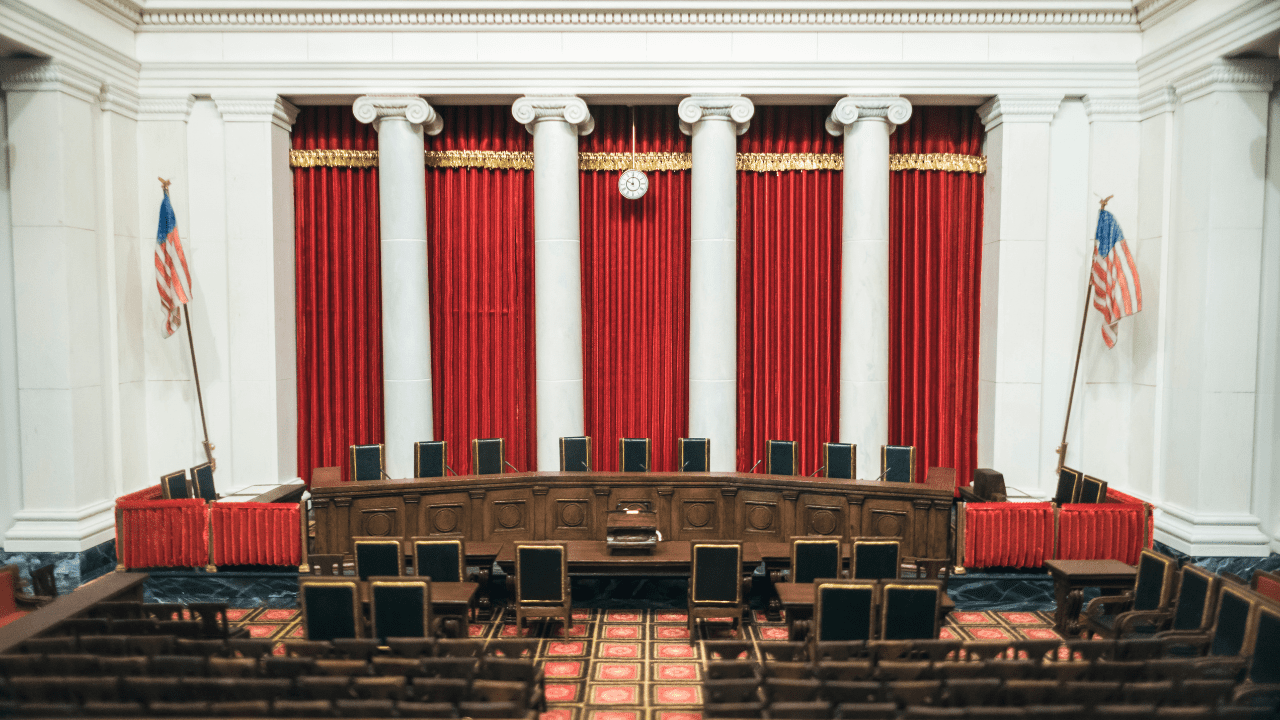
A Lucrative and Underrated Career Path of Court Reporting
An interview with Karen Santucci, Court Reporting Program Advisor at Plaza College
Q: What does a career in court reporting entail?
Court reporting has always been known as a judicial profession. It involves a person in the courtroom using a small machine to record everything said verbatim.
That aspect remains a significant part of it. We primarily work in the courts. Additionally, we engage in freelance work, which is pretrial. You can opt for a full-time job within the court system or become a private contractor. As a contractor, you work with agencies, taking on jobs as they come and enjoying the flexibility to choose how many days you want to work.
Since the Americans with Disabilities Act (ADA), court reporters have expanded their services to include closed captioning and assisting the hearing-impaired community. This goes beyond just captioning for television; it extends to sports arenas, theaters, and even educational institutions. In educational settings, for example, you can be in the classroom with a student, transcribing in real-time on a Steno machine, and the text appears instantly on the student's laptop. Alternatively, this service can also be done remotely.
Since COVID, many jobs have transitioned to Zoom. As a result, a significant portion of pretrial work can now be done from your home. You simply join a Zoom deposition, transcribe it, and never have to leave your house. Opportunities have only expanded.
Q: Why this career now?
We're facing a situation where many reporters are retiring, and there aren't enough newcomers to fill these positions. I’d say that many people are unaware of this profession. The challenge lies in the overall lack of awareness of the amazing career opportunities in Court Reporting.
What's also happening now is due to the shortage of court reporters, the requirements for lower court positions have changed. It used to take about a year of work experience to qualify for lower court roles. However, because of the shortage, the Office of Court Administration wants graduates right out of school. For example, they're offering internships and starting salaries for lower court positions in New York City at $90,000 plus transcript fees.
Q: If I'm sitting here at my desk and it's a deposition, am I just typing notes, or am I using that cool machine that you see in the courtroom?
You would be using the stenotype machine.
The current approach to teaching is called real-time. When students write on the machine, everything appears in English. We teach them a theory that enables differentiation, so each element has its own steno stroke and appears perfectly in English.
While you're writing on the steno machine, the symbols are automatically translated through computer software, allowing for an immediate transcript transmission.
Q: I type pretty fast. What's the benefit of the steno machine versus just typing word for word?
The benefit of using a steno machine versus regular typing is that on a steno machine, to graduate, you need to reach a speed of 225 words per minute. You can’t type word for word that fast. It's not like traditional typing where you hit every letter individually. We actually refer to it as writing because, in a single stroke, you can create a brief phrase like "ladies and gentlemen of the jury." You press one key once, and it all comes up very quickly.
With the steno machine, these keys can be pressed simultaneously in various combinations with a very light touch. It's a completely different language and a completely different machine altogether.
Q: Is there a legal requirement that steno machines have to be used in a courtroom? Who sets these requirements?
Yes, it is a requirement because a court reporter certifies the record. The transcript is certified by the court reporter as verbatim, capturing everything that was said.
This is why it's so crucial. For instance, when a case is appealed, they refer back to that transcript. Similarly, during jury deliberations, they often request a readback from the court reporter to hear exactly what the witness said. We capture every word, word for word, verbatim.
Q: Are court reporters also doing closed captioning work outside the courtroom because of the ADA changes?
Yes. Even in sports arenas, there are typically two court reporters for the hearing impaired. One court reporter captions for the broadcast going out to networks over the air. The other court reporter works within the stadium, providing captions for those in attendance. This helps people in the stadium understand what's happening, especially when there are billboards or other visual elements. For example, you have to caption reactions like laughter. If you watch closely on television, you'll notice that even background sounds are captioned and included.
Q: How is AI going to change this field?
When it comes to AI, the challenge is whether it can reach a point where it can differentiate and identify who's speaking. In courtrooms, especially during objections, you might have two people speaking at once. A court reporter can pause and say, "Excuse me, I can't take down two people speaking at once." We also differentiate who speaks, using symbols and notes like "Mr. Jones says the judge said this." But in tape recordings, we don't have that. The courts recognize that a tape recorder is not as effective as a live person, but we don't have enough people entering the field.
I'm uncertain if a tape recorder or AI system can handle such situations and say, "Excuse me, I didn't get that." Back in the day, when I started in the 80s, there was talk that computers would take over the field. However, what actually happened was that court reporters adapted to the technology.
Nowadays, we no longer use paper, and we write in real time. We've evolved with technology, but we still provide the essential human element in this equation.
Q: We spend a lot of time in the Bureau of Labor Statistics database, and I looked up the 2022 median pay. Is $63,560 an accurate number for a court reporter or stenographer?
I’d say that’s entry-level pay. Let's break it down. When a person graduates from our program, and it's a two-year program at the associate's level, not a bachelor's program, we can usually place all graduates into the grand jury right after school. The entry-level pay for a grand jury is $63K, and that includes all the benefits and a pension. It's a city or state job.
On top of that base salary, court reporters get paid per page when they transcribe a proceeding. Let's say it's a conservative estimate of $3 per page, and the transcript is 100 pages, which adds to your income. If there are multiple attorneys involved requesting copies, it's multiple money.
For those who prefer not to work full-time, they can freelance. The choice is yours. I've had many students who, right after school, were making around $1,200 a week, depending on how much work they wanted to take on.
Because of the great opportunities in the court system, a lot of my students now are mostly going into the courts because they can't pass up that kind of money. Starting salaries can range from $90,000 plus transcript fees in lower courts to over $100,000 plus transcript fees in Supreme Courts. Federal courts also need court reporters, and their starting salaries can be around $120,000 plus transcript fees. Then, you have the best package deals with health insurance and pensions.
The work is there. It's a matter of whether you want to work five days a week or just a couple of days. This isn't limited to New York; it's happening everywhere. Since our program went online due to COVID, I now have students from Colorado to the Virgin Islands. They have courts even in British territories like St. Thomas, St. Croix, and Barbados. I tell my students that they have the flexibility to relocate, even to places like Hawaii or the islands.
Q: When you sign up for the program, do you have to purchase a stenography machine, or how does that work?
You have to buy the machine, the software, and the laptop. They have a student version of the machine available, which is a little less. When you graduate, you can transition from the student writer to the professional software.
Q: Who are your students? Can you give us an idea of their age demographic? Are they typically second-career individuals, or do you also have recent high school graduates?
Lately, we've been seeing more second-career students. We don't have as many recent high school graduates. Instead, we're getting individuals with bachelor's degrees who went through college and realized they were unsure about what to do with degrees in liberal arts or psychology. Or they're in a field where they're just not happy, so they come in with a lot of college credits. This actually helps them progress through our program faster because we can apply those credits toward their associate's degree, and they often bring a higher level of knowledge with them. We also see a lot of evening students who work during the day.
Q: What classes are included in an associate's degree program for court reporting? Are there other topics that students learn, or is it primarily focused on training?
In the associate's degree program, students take their foundational college classes like English, math, and psychology. However, in the court reporting classes, we provide everything a student needs to become a successful court reporter.
They study medical and legal terminology because they will be transcribing for doctors and dealing with legal jargon. We teach them how to use the software because it's another aspect of producing a transcript. They also learn about the court system and job and internship opportunities.
Once students reach a speed of 180 words per minute, they begin their internships, which involve sitting in on actual court proceedings and depositions. It's like on-the-job training. Upon completion of the program, students are usually placed quickly. There's a high demand for court reporters, and agencies are actively looking for qualified individuals.
It's an exciting job where you have a front-row seat to all kinds of trials.
You get to hear exactly what's happening, and it's never boring. There's something new every day. You learn about a wide range of topics because people discuss various subjects during court proceedings. For example, in my experience working in criminal cases, I've learned about arson and the origins of fires, among other things.
Q: What's the career trajectory for someone who starts as a court reporter? Do many of them go on to become lawyers, or do they pursue other paths?
Typically, if you enjoy working in the court system, you would progress through the system, moving from lower court to Supreme Court positions. Eventually, many court reporters retire, but even after retirement, they often continue to do captioning work on the side. They can maintain their pension and use their stenography machine to caption events like college classes or take depositions. All you need is your laptop and machine, and you can even do this work from the comfort of your home.
Most court reporters don't transition into becoming lawyers because it's an entirely different profession. Besides, the earning potential as a court reporter is quite high. In fact, some court reporters make more than some lawyers and even more than judges.
I have an instructor who supervises in Queens Supreme, and she sometimes makes more than the judges, especially on high-profile cases. With daily copy and additional fees per page, you can earn substantial money, particularly on major cases, such as those in federal court, like the Trump and other high-profile cases. The government or your employer provides a base salary, and they also allow you to earn extra fees because they want a copy of that transcript.
If a case goes on to appeal, they often return to the court reporter years later and request another copy, which means you get paid again for producing it.
Q: Are you certified by the state, and would the certification differ from one state to another, for example, between Colorado and New York?
Certification requirements can vary from state to state, but I should clarify that when working as a freelancer, New York doesn't have a specific state certification. However, in many other states, like California, you may need to pass state-specific certifications. Additionally, there is a national organization called the National Court Reporting Association (NCRA), which offers certifications that many court reporters, even in New York, pursue to enhance their qualifications.
These certifications from the NCRA cover various aspects of court reporting, including real-time writing. So, you can earn different certifications to demonstrate your expertise. When you work for the courts, you typically have to pass a specific court test. In New York, we recently held court tests for lower court and Supreme Court positions. Once you pass these tests, you become a permanent civil servant in the state association. There's also a federal test to become a certified employee.
Q: From your perspective at the university, are you facing challenges in filling these court reporting programs, or are they full?
No, we have a problem. There's a prevailing belief that everyone must pursue a bachelor's degree. Students are often pushed to go to traditional four-year colleges. This has resulted in fewer high school students considering court reporting as a career option.
We used to participate in career days at high schools, but the guidance counselors and parents tend to emphasize the importance of a four-year degree. Unfortunately, this has led to students discovering court reporting after they've completed their bachelor's degree programs, and they sometimes regret not knowing about it earlier.
Parents often believe that without a bachelor's degree, their children won't have good earning potential. This perception creates a disconnect. Additionally, many people simply aren't aware of the field unless they encounter it during jury duty or through TV shows like "Law and Order."
We are starting to see some improvement in awareness, partly because of the use of real court reporters in TV shows, as opposed to the outdated portrayals where papers fell on the floor. We've even had individuals contact our school after seeing court reporters on TV and wanting to learn more about the profession. Some students, like an actress who was playing a court reporter, came to us because she wanted to be more authentic. She ended up falling in love with the profession.
In general, many people simply don't know about the opportunities and the exciting work that court reporters do.
Q: What is the cost of a two-year associate's degree program in court reporting?
The cost of the Court Reporting Associates degree program at our school depends on whether students qualify for the accelerated track. For those on the accelerated track, tuition is $5,200 per semester, and for students who do not qualify for the accelerated track, it is $7,000 per semester. It's important to note that we operate on a trimester system, which means there are three semesters in a year.
Considering our program's cost compared to many traditional colleges, it's quite competitive. Additionally, all the courses in our program are directly relevant to the court reporting profession.
Q: What kind of people tend to excel in this field?
To excel in the field of court reporting, you should have a fascination with the stenography machine. You need to be willing to learn a new language and writing system, as court reporting involves a unique skill set. Falling in love with this little machine is a key indicator of potential success.
A lot of it is about putting in the work to master the machine. It's like when you train for either the Olympics or if you're a pianist or anyone who does an instrument. They do well because they're disciplined. To reach the required speed on the steno machine, you have to put in the hours. The more time you devote, the quicker you can get through. That's where students progress at different rates based on the time they can commit to practice.
Individuals who have a genuine interest in court cases, legal proceedings, and discipline tend to thrive in this field.
The flexibility of the profession is a great fit for working moms. You can structure your work around your schedule, whether it's taking depositions in the morning and picking up your kids from school or working at night. You can balance a career and family life.
I recommend that people who are curious about court reporting take advantage of our free introductory class. It's a two-week program with a total of 6 hours of instruction, where you'll learn the basics of the stenography machine, including the alphabet and phonetic alphabet, and get a feel for how the machine works. This can help you determine if you like the profession and if it's the right fit for you.









